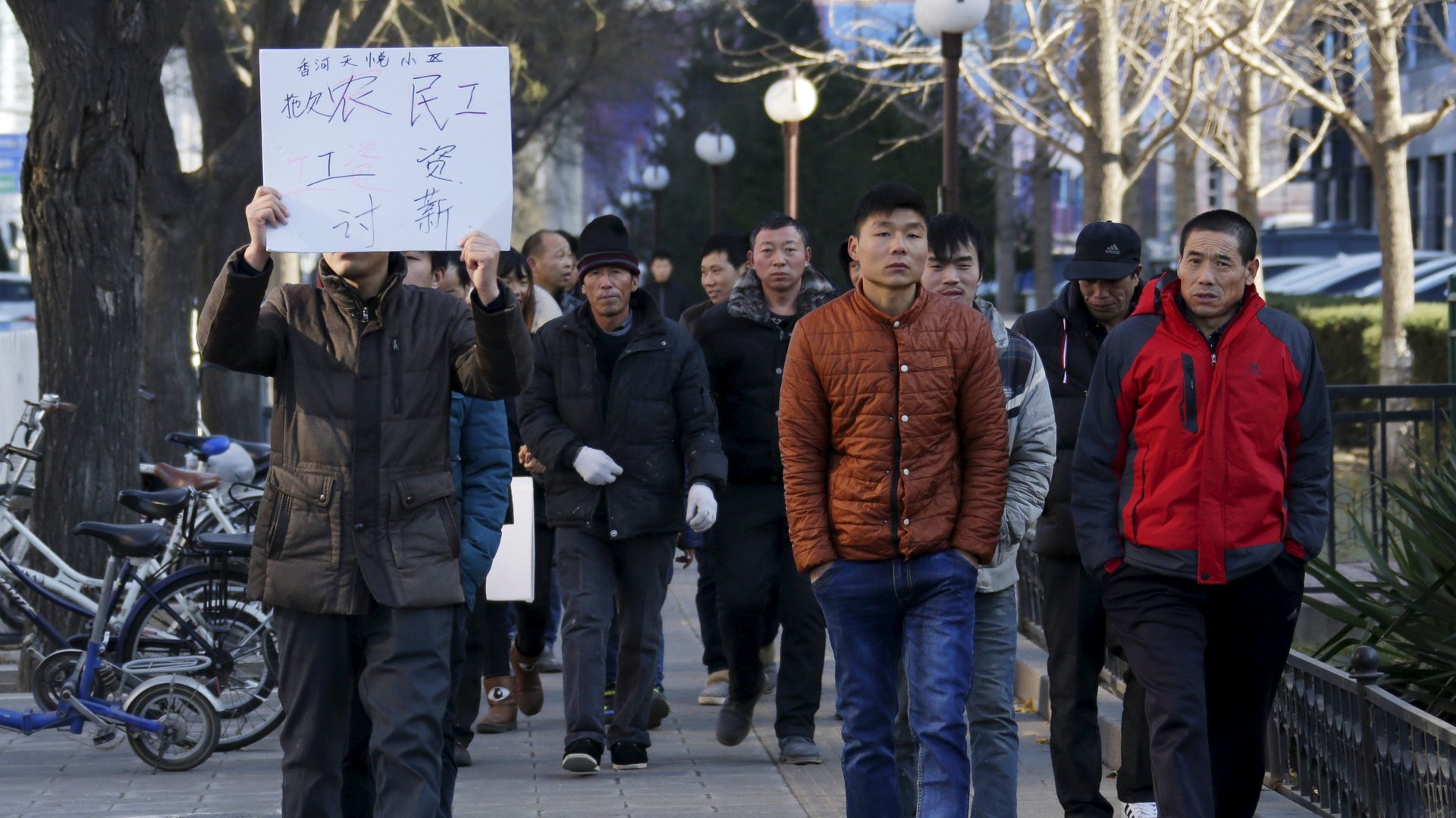Charted: China’s migrant workers are the ones suffering in a slowing economy
Nearly three million Chinese migrant workers didn’t get paid on time in 2015, the highest level in the past five years, as China’s industries battle slowing economic growth.


Nearly three million Chinese migrant workers didn’t get paid on time in 2015, the highest level in the past five years, as China’s industries battle slowing economic growth.
The National Bureau of Statistic released today (Apr. 28) its annual report (link in Chinese) on the country’s rural migrant workers, whose households are registered in rural areas but are employed at urban workplaces. Migrant workers account for more than one third of China’s entire working population.
There were 277 million migrant workers in China in 2015, up 1.3% from the year before, according to the bureau’s latest report. The growth of the number of migrant workers is the slowest since 2009, as the country’s GDP growth slows down:
Some 2.77 million migrant workers, or 1% of the total, didn’t get paid on time last year, the highest number in five years, the report shows.
Workers in the construction sector are most at risk of not being paid on time at 2%, up from 1.4% the year before.
The report also shows migrant workers are moving slowly from the manufacturing and construction sectors to service industries, a shift that Beijing is trying to orchestrate for the entire economy. Still, manufacturing and construction make up for more than half of Chinese migrant workers’ jobs.
Chinese migrant workers earned an average 3,072 yuan ($474) per month in 2015. Those who didn’t get paid on time were owed an average of 9,788 yuan, or more than three months wages.
The official government statistics may be understating the problem.
Perhaps not surprisingly, the country has seen a surge in labor strikes and protest—a record-high 2,774 incidents in 2015, double the previous year, according to Hong Kong-based NGO China Labour Bulletin.
More than two-thirds of all the incidents recorded in 2015 were related to the non-payment of wages, the NGO said.